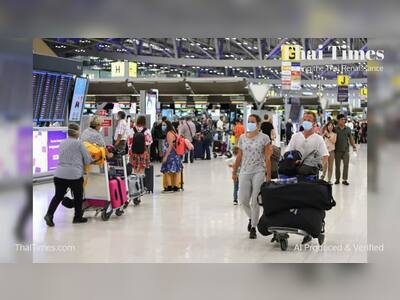Germany’s Automotive Industry Faces Crisis as Bosch Cuts 5,500 Jobs
Volkswagen is not alone: high energy costs, and mounting competition from Chinese that makes so much better and cheaper cars threaten the country’s economic cornerstone.
Germany’s auto sector, long a symbol of its industrial might, is grappling with an unprecedented crisis. Robert Bosch, the world’s largest automotive supplier, announced plans to cut 5,500 jobs globally, including 3,800 in Germany. The company cited weakening demand for electric vehicles (EVs) and intensifying global competition as key factors behind the decision.
Bosch’s move is not an isolated case. Volkswagen, another German giant, is mulling plant closures and workforce reductions. Ford recently revealed plans to slash 4,000 European jobs. Meanwhile, Chinese automakers are gaining ground with cars that are both cheaper and technologically advanced, challenging the dominance of German engineering. Industry leaders warn that the automotive sector, which contributes nearly 10% of Germany’s GDP, is at a critical juncture.
“The automotive industry is suffering from significant overcapacity,” Bosch said in a statement, adding that it must reduce costs to remain competitive in an increasingly volatile market.
A Sector Under Siege
Germany’s automotive sector is not just an economic engine; it is a source of national pride. Yet, the challenges it faces are manifold. Sluggish EV demand, soaring energy costs, and competition from Chinese automakers have created a perfect storm.
Bosch plans to cut 3,500 jobs in its car software division by 2027, with a further 1,300 layoffs in its steering division by 2030. Frank Sell, head of Bosch’s workers’ council, described the cuts as a “slap in the face” and vowed to fight them.
“Job losses on this scale will have a devastating impact, not just on workers and their families but on the broader economy,” said a union representative.
Adding to the uncertainty, the German Association of the Automotive Industry (VDA) warned that the country is “dramatically losing its international competitiveness.” A recent VDA report predicts that reshuffling within the industry could lead to 186,000 job losses by 2035, a quarter of which have already occurred.
The Energy Dilemma
One of the most pressing issues is the cost of energy. Germany’s ambitious transition to renewable energy has resulted in some of the highest electricity prices in Europe. While this aligns with the country’s climate goals, it places a heavy burden on energy-intensive industries like automotive manufacturing.
High energy costs have further strained companies like Bosch, which are already grappling with the rising costs of raw materials and the challenges of transitioning to EV production.
Lagging Behind in the EV Race
Another significant challenge is the global shift to electric vehicles. While Germany has been a leader in traditional automotive manufacturing, it has struggled to match the pace of innovation set by Chinese EV manufacturers.
Chinese automakers have rapidly advanced their technology and scaled up production, offering EVs at prices that German companies find hard to compete with. BYD, NIO, and Geely, for example, are making inroads into Europe with vehicles that are affordable, efficient, and packed with cutting-edge features.
“Germany used to set the pace in the automotive world. Now it’s playing catch-up,” said an industry analyst.
Bosch and other German firms have faced criticism for being too slow to adapt to the EV market. Tesla, which has built a major factory near Berlin, also poses a significant challenge, forcing Germany’s automakers to defend their home turf.
Broader Implications for the Economy
The crisis in the automotive sector has implications far beyond job losses at individual companies. With automotive manufacturing accounting for a significant share of Germany’s exports, a prolonged downturn could ripple through the broader economy, affecting suppliers, small businesses, and even the European Union’s economic stability.
“Germany’s auto sector is the backbone of its economy,” said a senior economist. “If it falters, the consequences will be felt across Europe.”
Crisis or Opportunity?
Despite the challenges, some industry insiders see the current crisis as an opportunity for reinvention. Germany’s engineering expertise remains world-class, and its focus on sustainability could become a competitive advantage as global regulations tighten.
“The transition to EVs and renewable energy is a marathon, not a sprint,” said an executive at a German automaker. “Germany may be lagging now, but its ability to innovate and adapt should not be underestimated.”
However, experts caution that bold action is needed. Investments in EV technology, smarter energy policies, and greater collaboration between industry and government will be essential to maintaining Germany’s position as a global automotive leader.
The Road Ahead
The German automotive sector stands at a crossroads. It can either adapt to the demands of a rapidly changing market or risk losing its leadership position. Bosch’s layoffs and similar announcements from other automakers highlight the urgency of the situation.
As Germany grapples with this crisis, the world is watching. The outcome will not only determine the future of its automotive industry but also its role in the global economy.
“Germany’s industrial resilience has been tested before,” said a historian. “The question now is whether it can once again reinvent itself to meet the challenges of the 21st century.”
Bosch’s move is not an isolated case. Volkswagen, another German giant, is mulling plant closures and workforce reductions. Ford recently revealed plans to slash 4,000 European jobs. Meanwhile, Chinese automakers are gaining ground with cars that are both cheaper and technologically advanced, challenging the dominance of German engineering. Industry leaders warn that the automotive sector, which contributes nearly 10% of Germany’s GDP, is at a critical juncture.
“The automotive industry is suffering from significant overcapacity,” Bosch said in a statement, adding that it must reduce costs to remain competitive in an increasingly volatile market.
A Sector Under Siege
Germany’s automotive sector is not just an economic engine; it is a source of national pride. Yet, the challenges it faces are manifold. Sluggish EV demand, soaring energy costs, and competition from Chinese automakers have created a perfect storm.
Bosch plans to cut 3,500 jobs in its car software division by 2027, with a further 1,300 layoffs in its steering division by 2030. Frank Sell, head of Bosch’s workers’ council, described the cuts as a “slap in the face” and vowed to fight them.
“Job losses on this scale will have a devastating impact, not just on workers and their families but on the broader economy,” said a union representative.
Adding to the uncertainty, the German Association of the Automotive Industry (VDA) warned that the country is “dramatically losing its international competitiveness.” A recent VDA report predicts that reshuffling within the industry could lead to 186,000 job losses by 2035, a quarter of which have already occurred.
The Energy Dilemma
One of the most pressing issues is the cost of energy. Germany’s ambitious transition to renewable energy has resulted in some of the highest electricity prices in Europe. While this aligns with the country’s climate goals, it places a heavy burden on energy-intensive industries like automotive manufacturing.
High energy costs have further strained companies like Bosch, which are already grappling with the rising costs of raw materials and the challenges of transitioning to EV production.
Lagging Behind in the EV Race
Another significant challenge is the global shift to electric vehicles. While Germany has been a leader in traditional automotive manufacturing, it has struggled to match the pace of innovation set by Chinese EV manufacturers.
Chinese automakers have rapidly advanced their technology and scaled up production, offering EVs at prices that German companies find hard to compete with. BYD, NIO, and Geely, for example, are making inroads into Europe with vehicles that are affordable, efficient, and packed with cutting-edge features.
“Germany used to set the pace in the automotive world. Now it’s playing catch-up,” said an industry analyst.
Bosch and other German firms have faced criticism for being too slow to adapt to the EV market. Tesla, which has built a major factory near Berlin, also poses a significant challenge, forcing Germany’s automakers to defend their home turf.
Broader Implications for the Economy
The crisis in the automotive sector has implications far beyond job losses at individual companies. With automotive manufacturing accounting for a significant share of Germany’s exports, a prolonged downturn could ripple through the broader economy, affecting suppliers, small businesses, and even the European Union’s economic stability.
“Germany’s auto sector is the backbone of its economy,” said a senior economist. “If it falters, the consequences will be felt across Europe.”
Crisis or Opportunity?
Despite the challenges, some industry insiders see the current crisis as an opportunity for reinvention. Germany’s engineering expertise remains world-class, and its focus on sustainability could become a competitive advantage as global regulations tighten.
“The transition to EVs and renewable energy is a marathon, not a sprint,” said an executive at a German automaker. “Germany may be lagging now, but its ability to innovate and adapt should not be underestimated.”
However, experts caution that bold action is needed. Investments in EV technology, smarter energy policies, and greater collaboration between industry and government will be essential to maintaining Germany’s position as a global automotive leader.
The Road Ahead
The German automotive sector stands at a crossroads. It can either adapt to the demands of a rapidly changing market or risk losing its leadership position. Bosch’s layoffs and similar announcements from other automakers highlight the urgency of the situation.
As Germany grapples with this crisis, the world is watching. The outcome will not only determine the future of its automotive industry but also its role in the global economy.
“Germany’s industrial resilience has been tested before,” said a historian. “The question now is whether it can once again reinvent itself to meet the challenges of the 21st century.”











